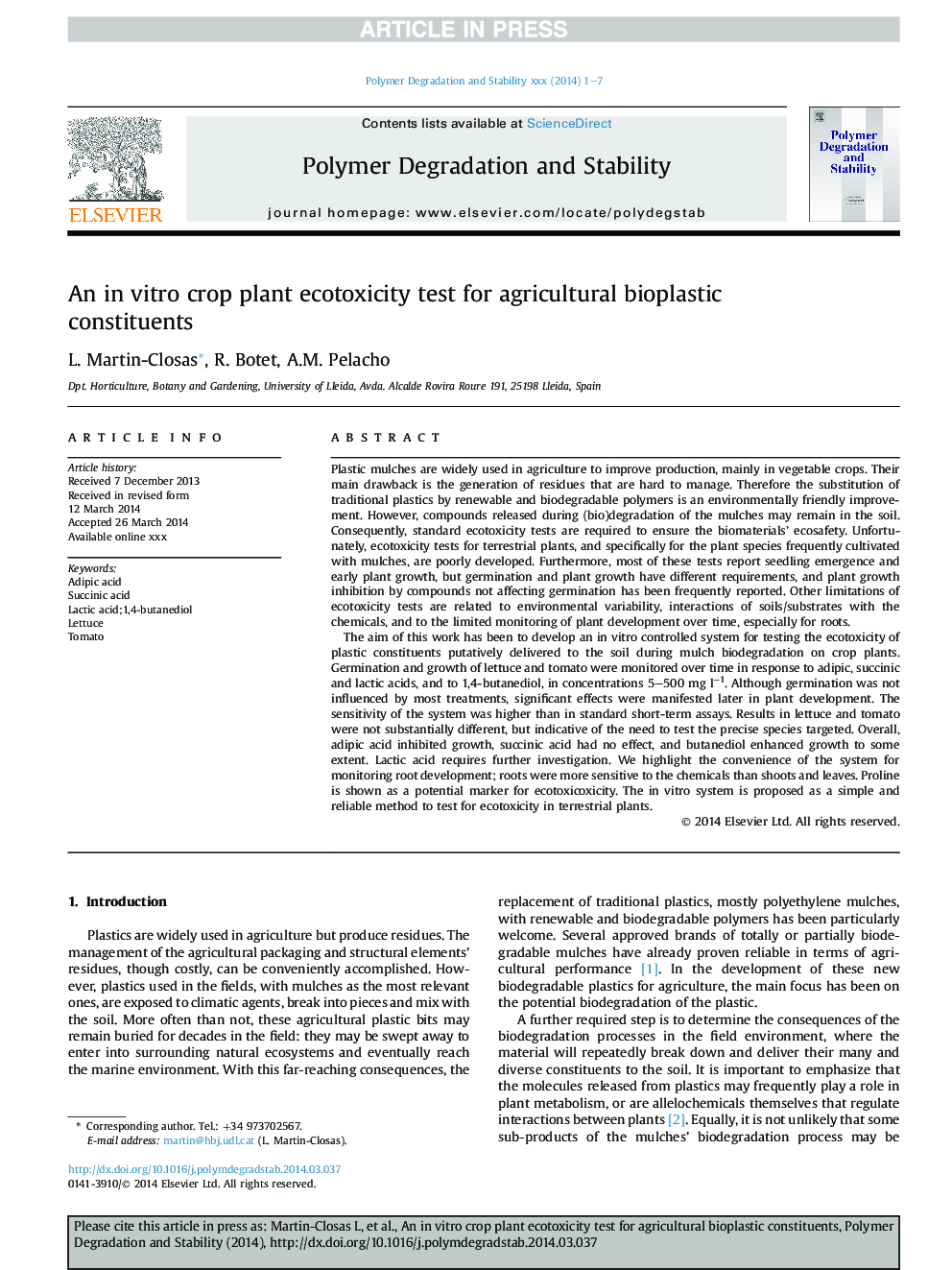| Article ID | Journal | Published Year | Pages | File Type |
|---|---|---|---|---|
| 5201767 | Polymer Degradation and Stability | 2014 | 7 Pages |
Abstract
The aim of this work has been to develop an in vitro controlled system for testing the ecotoxicity of plastic constituents putatively delivered to the soil during mulch biodegradation on crop plants. Germination and growth of lettuce and tomato were monitored over time in response to adipic, succinic and lactic acids, and to 1,4-butanediol, in concentrations 5-500 mg lâ1. Although germination was not influenced by most treatments, significant effects were manifested later in plant development. The sensitivity of the system was higher than in standard short-term assays. Results in lettuce and tomato were not substantially different, but indicative of the need to test the precise species targeted. Overall, adipic acid inhibited growth, succinic acid had no effect, and butanediol enhanced growth to some extent. Lactic acid requires further investigation. We highlight the convenience of the system for monitoring root development; roots were more sensitive to the chemicals than shoots and leaves. Proline is shown as a potential marker for ecotoxicoxicity. The in vitro system is proposed as a simple and reliable method to test for ecotoxicity in terrestrial plants.
Related Topics
Physical Sciences and Engineering
Chemistry
Organic Chemistry
Authors
L. Martin-Closas, R. Botet, A.M. Pelacho,
